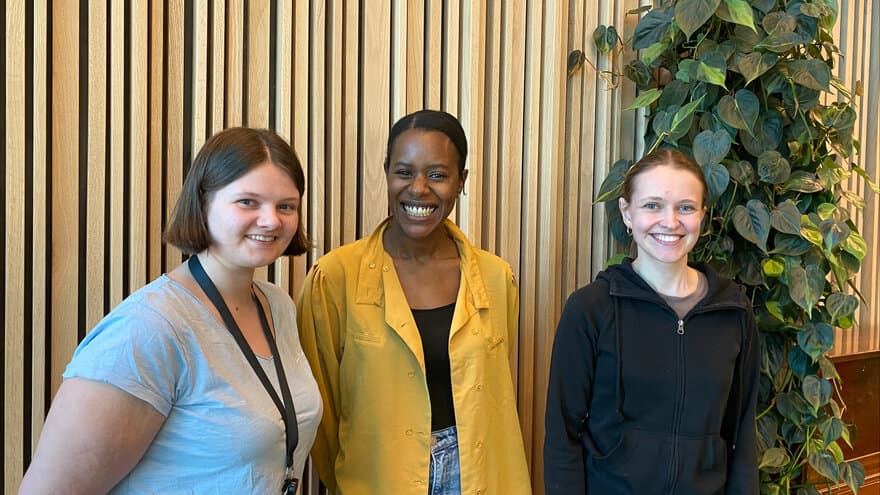During the spring of 2023, EDUPROMO is sponsoring travel and accomodation for three veterinary students to Malawi for two months, making it possible for them to partake in a relevant, important and engaging One Health project aiming to limit spread of rabies from dogs to humans. The project "Improving implementation and operation of a One Health platform to combat rabies in Malawi" is headed by the Norwegian Veterinary Institute and researcher Hannah Jørgensen. The students have generated their first blogpost, and here it is:
"As the day of departure approaches rapidly, we are anticipating this unique opportunity with excitement. We still have a lot to do before leaving next week, but have been assured by several of our supervisors that the departure date will sneak up on us way too quickly regardless of how much time we spend preparing for it.
For those of you who don’t know us, we are three veterinary students from NMBU in our final year, travelling to Malawi as a part of the EDUPROMO program to work with rabies in a One health perspective as a research-oriented track for our specialisation. The project is a part of the Norwegian Veterinary Institute (NVI) international One Health initiative. Elizabeth Akinsanmi-Guren and Charlotte Eikeskog Ravnås are working on establishing a more efficient sample-protocol using PCR-analysis and testing transport media we hope will be suitable for Malawian conditions. Ragnhild Kvisle Abildsnes is researching attitudes towards dogs and canine rabies management from an animal welfare perspective. We hope our work can ensure safer methods of testing, rapid and correct test responses and to ensure that the welfare of the animal is not forgotten in this process.
We have spent most of January and February preparing for the field work, including quite a lot of laboratory experiments but also designing questionnaires, focus groups, consent forms, information sheets etc. In collaboration with NVI, we have also made an instruction video where we demonstrate safe rabies sampling methods.
On March 6th, we are headed to Lilongwe, the capital of Malawi, to do field work for our research projects. We are ready for eight weeks partially outside of our comfort zones, perhaps with a bit of a culture shock, yet hopefully, having the time of our lives being part of an international team working together to combat this disease. Rabies is a devastating disease, killing approximately 59 000 people each year and an unknown number of animals. The WHO want to eradicate rabies in humans by 2030, and we are humbled that we are trusted to take part in this important cause, considering we haven’t even graduated yet.
In Malawi, we will be collecting data and gaining experience. We are cooperating with local veterinarians, assistant veterinary officers and various non-governmental organisations and will be analysing samples at the Central Veterinary Laboratory in Lilongwe. We are looking forward to finally meeting all our Malawian colleagues and hope we have time to see some local attractions during our stay. We are also very happy to be escaping the cold Norwegian winter and excited to soon be sipping local Malawian tea and coffee in between field and laboratory work."
